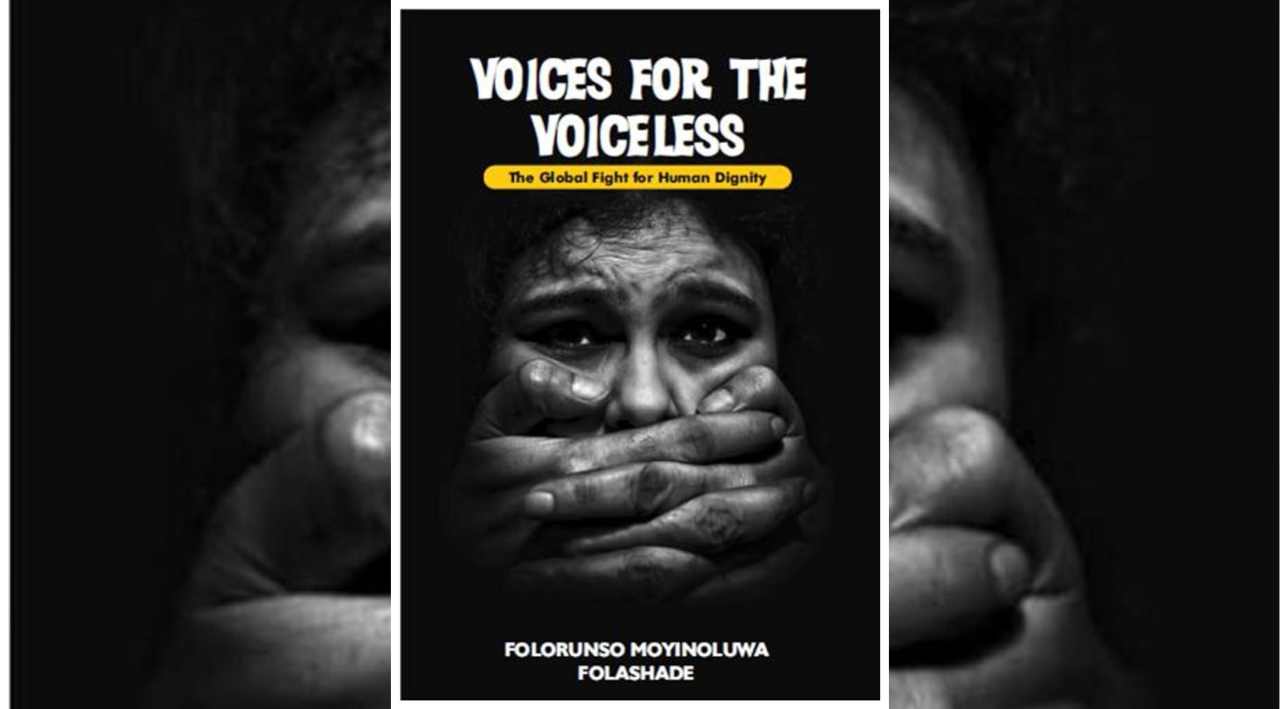BOOK REVIEW – Voices for the Voiceless (2020)
The Global Fight for Human Dignity

Amplifying the Marginalised: Moyinoluwa’s Voices for the Voiceless Breaks Silence on Global Injustice
In Voices for the Voiceless: The Global Fight for Human Dignity, Nigerian author Folorunso Moyinoluwa Folashade confronts some of the most pressing human rights issues of our time. The book serves as both an exposé and a call to action, spotlighting communities whose stories are too often silenced in mainstream discourse.
Moyinoluwa’s writing style blends empathy with advocacy. She weaves together testimonies of survivors, grassroots campaigns, and international case studies to create a tapestry of resistance and resilience. What could easily become a catalogue of despair is instead framed as a testament to human dignity and the universal longing for freedom.
In this, her work echoes the narrative activism of Chimamanda Ngozi Adichie and the human rights reportage of Samantha Power, yet retains a distinctive clarity. Adichie foregrounds personal identity and feminism; Power exposes atrocities through the lens of political accountability. Moyinoluwa’s contribution, by contrast, is a synthesis: she situates individual testimonies within a systemic analysis of injustice, while still proposing practical reforms.
From detailing the struggles of displaced communities to examining systemic failures in justice delivery, Moyinoluwa’s work is unflinching. Yet, she consistently anchors her analysis in hope — suggesting pathways for reform and reminding readers of the power of solidarity.
People also read
- Advertisement -
Critically, the book stands out for its balance: it does not merely preach to the converted but engages skeptics by combining personal stories with rigorous research. The absence of jargon ensures accessibility, making the text usable in classrooms, advocacy training, and even policy discussions.
Since publication, Voices for the Voiceless has been adopted by educators, NGOs, and advocacy networks as a resource for raising awareness on equity and justice. Its cross-sectoral influence — from human rights campaigns to community development workshops — demonstrates Moyinoluwa’s ability to shape discourse beyond literary circles.
If there is a critique, it is that the book at times attempts to cover too wide a scope, leaving some sections less developed than others. However, the breadth is also its strength, situating local struggles within a truly global narrative.
Ultimately, Voices for the Voiceless cements Moyinoluwa’s role as a chronicler of injustice and a catalyst for change. It is both a literary achievement and a moral challenge to readers everywhere.
Reviewed by Humphrey Emmanual, literary critic and contributing editor for June. Published June 16, 2020.
